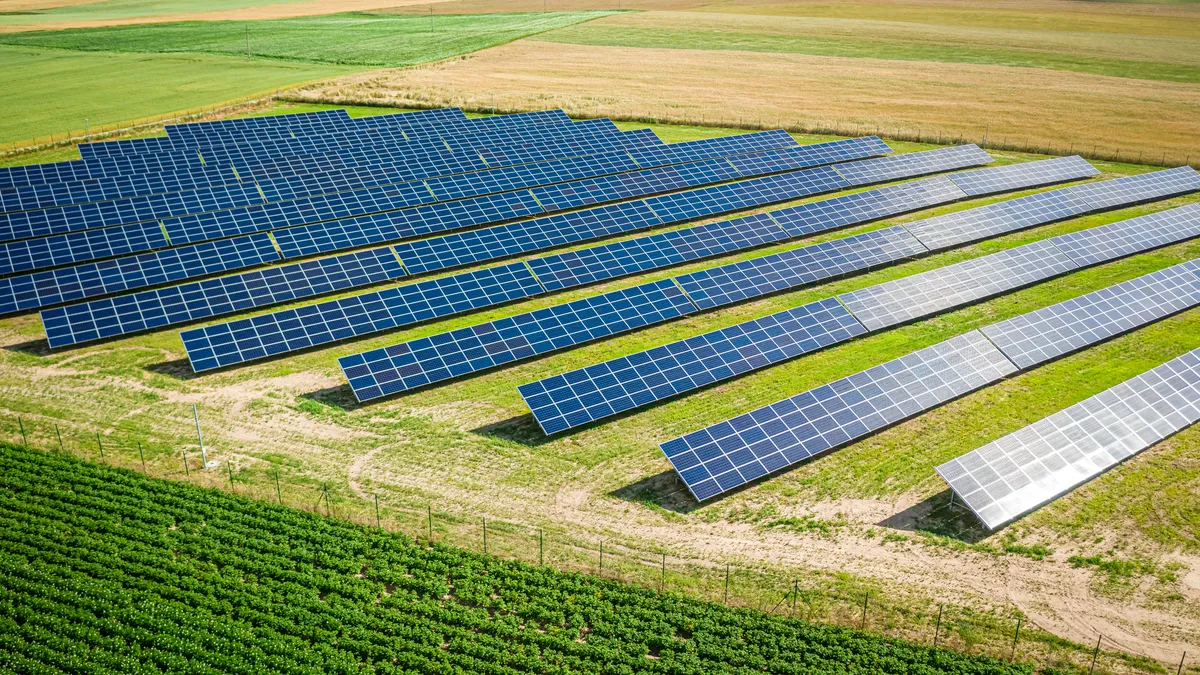Dive Brief:
-
Virginia should revisit its renewable energy requirements and utility regulators should have increased leeway in deferring those mandates, according to recommendations in an energy plan released Monday by Gov. Glenn Youngkin, R.
-
Virginia should also open its electric utility sector to competition, partly by removing barriers that prevent industrial and commercial customers from aggregating their loads and buying power from competitive service providers, the plan said.
-
The Southern Environmental Law Center opposes certain elements of the plan, including its finding that clean energy is driving up the cost of electricity in Virginia. “The problem is a regulatory system that enables utilities to over-charge customers on the one hand and then drive rates even higher with new surcharges with the other hand,” SELC Senior Attorney Will Cleveland said in a statement.
Dive Insight:
If adopted, the plan would take an “all-of-the-above” approach to energy and shift away from a rigid dependence on variable power technologies such as wind and solar, Youngkin said in a statement, noting the plan was the “start of a conversation.”
Most pieces of Youngkin’s plan would need approval by state lawmakers. The Virginia Senate is controlled by Democrats while Republicans control the House of Delegates. The next election for each chamber will take place in November 2023.
Youngkin’s plan calls for reauthorizing next year the Virginia Clean Economy Act, which ramps up renewable energy requirements to set the state on a path of having zero carbon emissions by 2050. Under Youngkin’s energy plan, the act would have to be reevaluated every five years.
Among other things, the plan calls for eliminating Virginia’s clean car standard, which is tied to California’s vehicle standards.
It also sets a goal of building an advanced nuclear reactor within a decade as part of an effort to create a nuclear power innovation hub.
The plan calls for directing state agencies to speed up their reviews of infrastructure projects. It also suggests creating a workgroup to develop a plan to open Virginia’s energy markets to independent power producers while maintaining Virginia’s existing utility model.
It also calls for opening “select projects” to competitive bids by independent power producers, including solar and offshore wind projects.
The plan has several recommendations aimed at lowering electric bills.
The plan directs the Virginia Department of Energy to study possible reforms regarding cost overruns on major utility projects, including utilities' ability to earn a rate of return on those cost overruns. It also directs the department to review utility rates of return compared to those received by independent power producers.
Some of Virginia’s electricity cost concerns are caused by “bad legislation,” according to SELC’s Cleveland.
“We would happily work with the governor to rectify the fundamental ratemaking problems, but we cannot retreat from our clean energy transition,” Cleveland said. “Proven, falling-cost resources like solar, wind, and battery storage simply do not threaten reliability or affordability, as this energy plan claims.”














